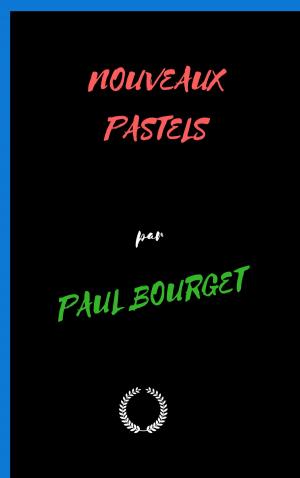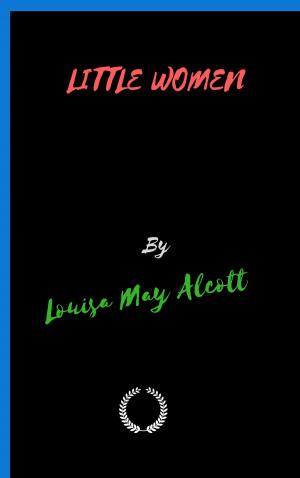| Author: | Amy Levy | ISBN: | 1230002420066 |
| Publisher: | Jwarlal | Publication: | July 10, 2018 |
| Imprint: | Language: | English |
| Author: | Amy Levy |
| ISBN: | 1230002420066 |
| Publisher: | Jwarlal |
| Publication: | July 10, 2018 |
| Imprint: | |
| Language: | English |
There stood on Campden Hill a large, dun-coloured house, enclosed by a walled-in garden of several acres in extent. It belonged to no particular order of architecture, and was more suggestive of comfort than of splendour, with its great windows, and rambling, nondescript proportions. On one side, built out from the house itself, was a big glass structure, originally designed for a conservatory. On the April morning of which I write, the whole place wore a dejected and dismantled appearance; while in the windows and on the outer wall of the garden were fixed black and white posters, announcing a sale of effects to take place on that day week.
The air of desolation which hung about the house had communicated itself in some vague manner to the garden, where the trees were bright with blossom, or misty with the tender green of the young leaves. Perhaps the effect of sadness was produced, or at least heightened, by the pathetic figure that paced slowly up and down the gravel path immediately before the house; the figure of a young woman, slight, not tall, bare-headed, and clothed in deep mourning.
She paused at last in her walk, and stood a moment in a listening attitude, her face uplifted to the sky.
Gertrude Lorimer was not a beautiful woman, and such good looks as she possessed varied from day to day, almost from hour to hour; but a certain air of character and distinction clung to her through all her varying moods, and redeemed her from a possible charge of plainness.
She had an arching, unfashionable forehead, like those of Lionardo da Vinci's women, short-sighted eyes, and an expressive month and chin. As she stood in the full light of the spring sunshine, her face pale and worn with recent sorrow, she looked, perhaps, older than her twenty-three years.
Pushing back from her forehead the hair, which, though not cut into a "fringe," had a tendency to stray about her face, and passing her hand across her eyes, with a movement expressive of mingled anxiety and resolve, she walked quickly to the door of the conservatory, opened it, and went inside.
The interior of the great glass structure would have presented a surprise to the stranger expectant of palms and orchids. It was fitted up as a photographer's studio.
Several cameras, each of a different size, stood about the room. In one corner was a great screen of white-painted canvas; there were blinds to the roof adapted for admitting or excluding the light; and paste-pots, bottles, printing-frames, photographs in various stages of finish—a nondescript heap of professional litter—were scattered about the place from end to end.
Standing among these properties was a young girl of about twenty years of age; fair, slight, upright as a dart, with a glance at once alert and serene.
The two young creatures in their black dresses advanced to each other, then stood a moment, clinging to one another in silence.
It was the first time that either had been in the studio since the day when their unforeseen calamity had overtaken them; a calamity which seemed to them so mysterious, so unnatural, so past all belief, and yet which was common-place enough—a sudden loss of fortune, immediately followed by the sudden death of the father, crushed by the cruel blow which had fallen on him.
"Lucy," said the elder girl at last, "is it only a fortnight ago?"
"I don't know," answered Lucy, looking round the room, whose familiar details stared at her with a hideous unfamiliarity; "I don't know if it is a hundred years or yesterday since I put that portrait of Phyllis in the printing-frame! Have you told Phyllis?"
There stood on Campden Hill a large, dun-coloured house, enclosed by a walled-in garden of several acres in extent. It belonged to no particular order of architecture, and was more suggestive of comfort than of splendour, with its great windows, and rambling, nondescript proportions. On one side, built out from the house itself, was a big glass structure, originally designed for a conservatory. On the April morning of which I write, the whole place wore a dejected and dismantled appearance; while in the windows and on the outer wall of the garden were fixed black and white posters, announcing a sale of effects to take place on that day week.
The air of desolation which hung about the house had communicated itself in some vague manner to the garden, where the trees were bright with blossom, or misty with the tender green of the young leaves. Perhaps the effect of sadness was produced, or at least heightened, by the pathetic figure that paced slowly up and down the gravel path immediately before the house; the figure of a young woman, slight, not tall, bare-headed, and clothed in deep mourning.
She paused at last in her walk, and stood a moment in a listening attitude, her face uplifted to the sky.
Gertrude Lorimer was not a beautiful woman, and such good looks as she possessed varied from day to day, almost from hour to hour; but a certain air of character and distinction clung to her through all her varying moods, and redeemed her from a possible charge of plainness.
She had an arching, unfashionable forehead, like those of Lionardo da Vinci's women, short-sighted eyes, and an expressive month and chin. As she stood in the full light of the spring sunshine, her face pale and worn with recent sorrow, she looked, perhaps, older than her twenty-three years.
Pushing back from her forehead the hair, which, though not cut into a "fringe," had a tendency to stray about her face, and passing her hand across her eyes, with a movement expressive of mingled anxiety and resolve, she walked quickly to the door of the conservatory, opened it, and went inside.
The interior of the great glass structure would have presented a surprise to the stranger expectant of palms and orchids. It was fitted up as a photographer's studio.
Several cameras, each of a different size, stood about the room. In one corner was a great screen of white-painted canvas; there were blinds to the roof adapted for admitting or excluding the light; and paste-pots, bottles, printing-frames, photographs in various stages of finish—a nondescript heap of professional litter—were scattered about the place from end to end.
Standing among these properties was a young girl of about twenty years of age; fair, slight, upright as a dart, with a glance at once alert and serene.
The two young creatures in their black dresses advanced to each other, then stood a moment, clinging to one another in silence.
It was the first time that either had been in the studio since the day when their unforeseen calamity had overtaken them; a calamity which seemed to them so mysterious, so unnatural, so past all belief, and yet which was common-place enough—a sudden loss of fortune, immediately followed by the sudden death of the father, crushed by the cruel blow which had fallen on him.
"Lucy," said the elder girl at last, "is it only a fortnight ago?"
"I don't know," answered Lucy, looking round the room, whose familiar details stared at her with a hideous unfamiliarity; "I don't know if it is a hundred years or yesterday since I put that portrait of Phyllis in the printing-frame! Have you told Phyllis?"















